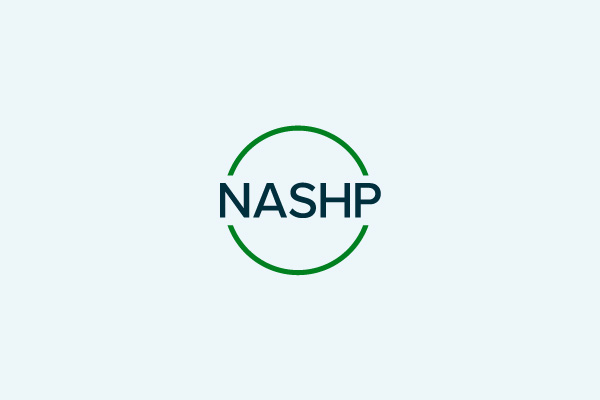This information was collected through a combination of state surveys and NASHP staff research. It offers a snapshot of how the state is defining, training, certifying, and paying for the CHW workforce — as well as how the state is developing cross-agency and state-to-local strategies to improve community health in partnership with CHWs.
This is a dynamic policy space, and states are continuing to develop new approaches. We will continue to make periodic updates to this page. Learn more about state CHW policies across the U.S.
State CHW Definition
The Washington State Department of Health (DOH) website states that CHWs “play a critical role in the health of their communities, linking diverse and underserved populations to health and social service systems. Based on their life experiences and roles as health influencers within their communities, CHWs work to reduce social and racial disparities in health care. CHWs can improve health outcomes and the quality of care while achieving significant cost savings.”
Certification and Training
Washington DOH offers a 10-week training course for CHWs at no cost. DOH has convened a Community Health Worker Leadership Committee to support the implementation of recommendations to improve CHW training and strengthen the CHW workforce.
Medicaid Reimbursement
Washington uses several different Medicaid reimbursement strategies for CHW services, including Federally Qualified Health Centers and the First Steps Maternity Support Services (MSS) program, which reimburses for MSS Medicaid State Plan covered services. CHWs may also be part of Washington’s Health Homes, which allows them to receive Medicaid funding for each patient served.
Washington’s managed care organizations (MCO) pay for CHWs though administrative costs to support case management activities through community-based CHWs who are employees of the MCO or a contracted community-based organization.
Washington’s section 1115 demonstration waiver allows CHWs to be paid through two components:
- Justice involved pre-release services for incarcerated individuals includes CHW services to assist with screening, navigation and referral.
- The health-related social needs services includes a category for case management, navigation, and referral, which will be used to pay for CHW services for both managed care and Medicaid without a managed care plan (historically known as fee-for-service) populations through regional community hubs and a native hub.
Other Funding or Financing Mechanisms
Engrossed Substitute Senate Bill 5693, Section 211 (103) appropriated $2,087,000 to the Washington State Health Care Authority (HCA), the State’s Medicaid agency, with the directive to do the following:
- Establish a two-year (January 2023–January 2025) grant program for primary care clinics to embed CHWs as part of care teams working with children and youth birth through age 18
- Develop and submit legislative reports on the impacts of the grant program
- Explore longer-term reimbursement in collaboration with key partners
Engrossed Substitute Senate Bill 5187 (44) appropriated an additional $6,164,000 to maintain HCA’s CHW grant through the duration of the project.
The Washington DOH received funding from the CDC Community Health Workers for COVID Response and Resilient Communities (CCR) initiative to better reach rural regions of the state. The program is also reconvening a cross-agency workgroup with state partner agencies and expanding a CHW-led community outreach program to Hispanic and Latino communities.
CHWs working in pediatric care through HCA’s CHW Grant provide outreach, informal counseling, and support to families as they navigate the health system to ensure access to needed services.
Key Partnerships
The Community Health Worker (CHW) Leadership Committee is an ongoing statewide multi-stakeholder group representative of the state and its diverse communities. Most members are CHWs and representatives of several CHW networks across the state. The CHW Leadership Committee also includes government agencies, health care systems, nonprofits, community colleges, and statewide associations. It builds on the 2018–2019 CHW Task Force recommendation to develop infrastructure within the CHW workforce.
State CHW Legislation
Engrossed Substitute Senate Bill 5693 appropriated funds to HCA for the Community Health Worker Grant.
State Resources
Information is unavailable.
State Overviews
ACO – Accountable care organization
AHEC – Area Health Education Centers
APHA – American Public Health Association
APM – Alternative payment model
CBO – Community-based organization
CDC – Centers for Disease Control and Prevention
CDC CCR Funding – Community Health Workers for COVID Response and Resilient Communities Funding
CHR – Community health representative
CHW – Community health worker
CPT Codes – Current Procedural Terminology Codes
C3 Project – CHW Core Competency Project
FFS – Fee for services
HCSPCS Codes – Healthcare Common Procedure Coding System Codes
HRSA – Health Resources & Services Administration
MCO – Managed care organization
NACHW – National Association of Community Health Workers
SDOH – Social determinants of health
VBP – Value-based payment
State CHW Definition: This category indicates where states have a formal definition of a CHW. In some cases, where there is not a definition in statute, this category may draw information from provider manuals and state websites or reports.
Certification and Training: This category includes information about how CHWs are trained in the state, which entities provide training, whether or not the state runs or recognizes a CHW certification program, and information about the entities that administer existing certification programs.
Medicaid Reimbursement: This category includes information about state Medicaid strategies that provide enrollees access to CHW services. Entries indicate whether state Medicaid programs currently reimburse for CHW services or incorporate CHWs into alternative payment models under the authority of a state plan amendment (SPA), or where states have earmarked funds to support CHW services under the authority of an 1115 demonstration waiver. It also indicates where CHW services might be supported through managed care approaches (e.g., where MCOs are paying for CHW services using administrative dollars or where states are using managed care contracts to incentivize or require MCOs to cover CHW services).
Other Funding or Financing Mechanisms: This category includes information about other state funding or financing approaches that cover CHW services or CHW positions. It includes information about federal grant dollars for which the state is the grantee.
Key Partnerships: This category offers information about key partners outside state government, including state CHW associations and CHW training entities, and highlights formal cross-agency partnerships within the state that support alignment of funding and resources for the CHW workforce.
State CHW Legislation: This category highlights any state legislation relevant to the CHW workforce. This might include statutory language directing agencies to develop a Medicaid reimbursement approach, laws that established state CHW certification, or other relevant statutes.
State Resources: This category offers links to any key reports or resources that states elected to highlight as critical to CHW policy and partnership.


